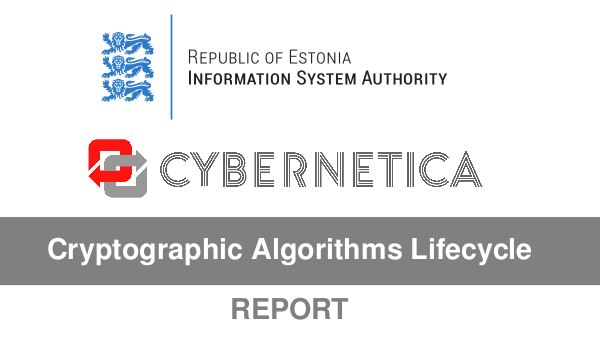03.06.2025 (Delta Room 1019):
Student: Anton Zakatov (Software Engineering MSc)
Title: Architecture of Secure Multi-Party Computation as a Service with No Single Point of Trust
Supervisor: Raimundas Matulevičius, Kert Tali
Reviewer: Burak Can Kus
03.06.2025 (Delta Room 1008):
Student: Roman Amjaga (Cyber Security MSc)
Title: Static Analysis to Detect Memory Corruption Vulnerabilities
Supervisor: Vesal Vojdani
Reviewer: Karoliine HolterStudent: Lucas Salvatore G Agro (Cyber Security MSc)
Title: Radio Based Analysis of Wireless Mice and Keyboards using Proprietary Protocols
Supervisor: Danielle Melissa Morgan
Reviewer: Daniel WürschStudent: Natalja Kjaernested (Cyber Security MSc)
Title: IoT Security: Graph-based Vulnerability and Risk Assessment Models
Supervisor: Sedat Akleylek
Reviewer: Ashutosh Dhar DwivediStudent: Juri Djomin (Cyber Security MSc)
Title: Evaluating SAMR Enumeration Exposure in Multi-Forest Active Directory
Supervisor: Raimundas Matulevičius, Juhan Aasaru
Reviewer: Andri RebaneStudent: Mihhail Karagjaur (Cyber Security MSc)
Title: Asset-Oriented Threat Analysis for Large Language Model Systems
Supervisor: Raimundas Matulevičius
Reviewer: Martin Macák
04.06.2025 (Delta Room 2048):
Student: Aqel Rizza Ndifuna (Conversion Master in IT)
Title: On the Road to Security Risk Management in Vehicle Teleoperation Scenarios
Supervisor: Raimundas Matulevičius
Reviewer: Abasi-Amefon Obot Affia-Jomants
04.06.2025 (Delta Room 2010):
Student: Pille Neider-Kuusalu (Conversion Master in IT)
Title: Cybersecurity Assessment in SME: Adaptation for the F4SLE Framework and the MASS Tool
Supervisor: Mari Seeba, Tarmo Oja
Reviewer: Kuldar Taveter
09.06.2025 (Delta Room 1008):
Student: Anette Habanen (Computer Science MSc)
Title: Deepfakes for Paper Vote Privacy Defence
Supervisor: Jan Villemson, Sven Laur
Reviewer: Illia TsiporenkoStudent: Hans Kristjan Veri (Computer Science MSc)
Title: Always Two, There Are: Towards Two-Party SDitH
Supervisor: Toomas Krips
Reviewer: Janno SiimStudent: Marco Kuusk (Computer Science BSc)
Title: Cyber Hygiene Feedback Tool
Supervisor: Arnis Paršovs
Reviewer: Tarmo OjaStudent: Robin Mürk (Computer Science BSc)
Title: Estonian ID Card’s Personal Data File Emulator
Supervisor: Arnis Paršovs
Reviewer: Danielle Melissa MorganStudent: Mihkel Jaas Karu (Computer Science BSc)
Title: Design and Security Analysis of Blind Smart-ID/SplitKey Signature
Supervisor: Nikita Snetkov, Peeter Laud, Toomas Krips
Reviewer: Ahto BuldasStudent: Johanna Kasenurm (Computer Science BSc)
Title: Web eID Authentication Window Spoofing Proof-of-Concept
Supervisor: Arnis Paršovs
Reviewer: Kristjan Krips
12.06.2025 (Delta Room 2034):
Student: Maare Karmen Oras (Computer Science BSc)
Title: Threat-Based Analysis and Management of Security Risks in AI Chatbot Systems
Supervisor: Ijeoma Faustina Ekeh, Raimundas Matulevičius
Reviewer: Vjatšeslav Antipenko
12.06.2025 (Delta Room 1008):
Student: Rico-Andreas Lepp (Computer Science BSc)
Title: Enhancing Single Packet Authorization with Multi-Factor Authentication
Supervisor: Tarmo Oja
Reviewer: Arnis Paršovs
13.06.2025 (Delta Room 2048):
Student: Sten Kaarel Marvet (Computer Science BSc)
Title: The Creation of a Leakfree Environment for Investigating Websites
Supervisor: Alo Peets
Reviewer: Kristjan KripsStudent: Hjalmar Vaiküll (Computer Science BSc)
Title: Renewing and Updating Computer Security Course Lab Materials
Supervisor: Alo Peets
Reviewer: Toomas Krips
Links: https://cs.ut.ee/en/content/thesis-deadlines-and-guidelines


